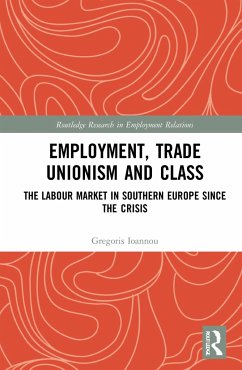The economic crisis has brought about a watershed in institutional, political, and social relations, reshaping the labour market and the class structure in southern Europe. This book provides a critical comparative assessment of the dynamics of change in the employment field, focusing on Spain, Greece, and Cyprus. The book assesses how the liberalization and deregulation processes and the promotion of market-enhancing reforms progressed in three different national settings, identifying the forces, agents, contexts, and mechanisms shaping the employment and industrial relations systems. The comparative perspective used deciphers the interplay of external and internal dynamics in the restructuring of the labour field in Southern Europe, examining austerity and its contestation in connection with prevailing societal ideologies and class shifts. The first part of the book sets the theoretical and historical context, the second is comprised of three empirical national case studies, and the third discusses comparatively the handling of the crisis, its impact, and its legacy from the standpoint of a decade later. The book presents differences in industrial relations systems, trade union forms, and class composition dynamics, accounting for the development of the crisis and the reshaping of the employment field after one decade of crisis. It will be of value to researchers, academics, professionals, and students working on issues of employment and industrial relations, labour market and labour law, political economy and class structure, as well as those interested in the contemporary society and economy of southern Europe in general, and Spain, Greece, and Cyprus in particular.
Bitte wählen Sie Ihr Anliegen aus.
Rechnungen
Retourenschein anfordern
Bestellstatus
Storno








